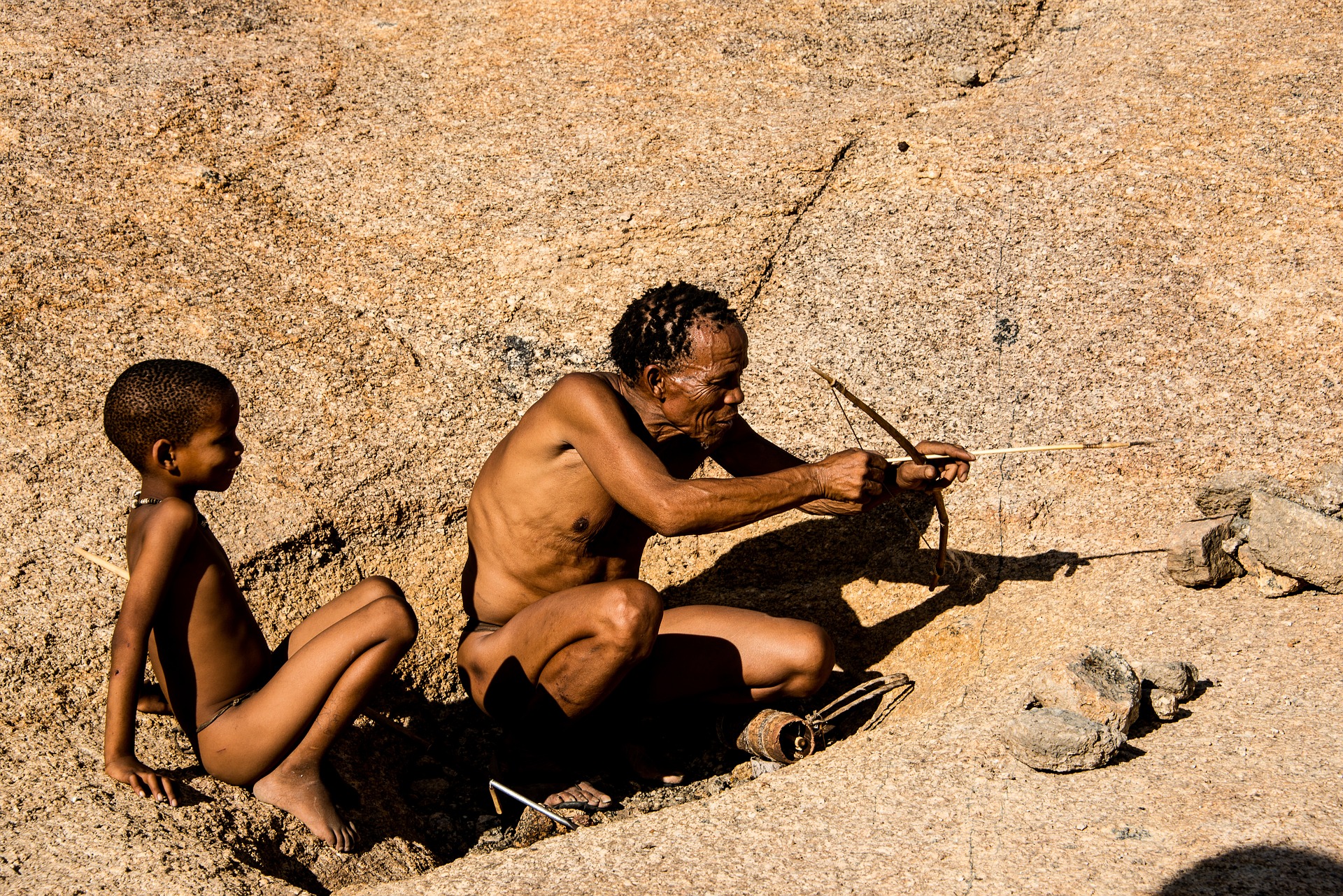Indigenous peoples around the world have their own belief systems and religious convictions, deeply rooted in their cultural and historical backgrounds. While many indigenous peoples preserve their traditional belief systems, some have converted to other religions such as Islam. In North Africa, some indigenous peoples, like the Tuareg and Berbers, converted to Islam, leading to a mix of traditional and Islamic practices. The conversion of indigenous peoples to Islam in North Africa is part of the rich history of this region and represents an example of the interaction between different cultures and religions. In this article, we will take a closer look at the conversion of indigenous peoples to Islam and examine a few cases of Native Americans who also converted to Islam.

【Vintage Viking Arrowhead Necklace】 The wolf sword pendant captures the Viking atmosphere in every carved edge.
Historical Conversions:
Description of historical conversions of indigenous peoples in North Africa to Islam and the reasons for them.
The conversion of indigenous peoples to Islam in North Africa has a long and complex history. Some historians believe that Islam was introduced in North Africa as early as the 7th century after the Hijra, the migration of the Prophet Muhammad from Mecca to Medina in 622 AD. Other sources suggest that the spread of Islam in North Africa began in the 8th century following the Arab conquests.
The Tuareg and Berbers, the indigenous peoples of North Africa, are known for their unique cultural traditions and their close connection to the desert. Most Tuareg and Berbers were traditionally followers of the Berber religion or animism, but starting in the 11th century AD, many began converting to Islam.
There are several reasons why the Tuareg and Berbers converted to Islam. One reason was the conquest of North Africa by Muslim armies in the 7th and 8th centuries. Many Tuareg and Berbers saw Islam as a way to gain political and economic advantages and to align themselves with the Muslim conquerors.
Another reason was the appeal of Islam as a religion. Many Tuareg and Berbers were attracted to the monotheism of Islam and its emphasis on justice and brotherhood. Islam also offered a new community and identity distinct from their traditional belief systems.
Despite converting to Islam, the Tuareg and Berbers have preserved many of their traditional customs and rituals, which are deeply rooted in their cultures. Today, the Tuareg and Berbers remain an important part of North Africa’s culture and history.
Conversions in America:
A description of a few cases of Native Americans who converted to Islam and the reasons why they adopted Islam.
Although Islam is historically not native to the Americas, there are a few cases of Native Americans who have converted to Islam. One such case is Malik el-Shabazz, better known as Malcolm X, who was a central figure in the U.S. civil rights movement during the 1950s and 1960s. Malcolm X grew up as a member of the Nation of Islam, a movement advocating for Black rights and embracing Islam as its religion.
Another notable case is Hamza Yusuf, a U.S.-born convert to Islam, who is now one of the most influential Muslim scholars in America. Yusuf was originally born as Mark Hanson and converted to Islam in the late 1970s. He later founded Zaytuna College, the first accredited Muslim college in the U.S.
The reasons why Native Americans convert to Islam are diverse. Some are drawn to the spiritual dimension of Islam, while others are attracted to its social and political aspects. For some, Islam also provides a way to strengthen their own cultural identity and connect with their indigenous roots.
Despite the small number of Native Americans converting to Islam, their conversion has an impact on the Muslim community in America. It demonstrates that Islam is open to other cultures and traditions and provides a means to build a new identity and community that transcends racial and ethnic boundaries.
Importance of Religion and Spirituality:
An overview of the importance of religion and spirituality for indigenous peoples in general, including their traditional belief systems and practices.
Religion and spirituality are central to many indigenous peoples, shaping their identity and culture. Indigenous peoples often have a deep spiritual connection to nature, considering it sacred. Many believe in a variety of spirits and deities that help them live in harmony with nature and protect their communities.
A well-known example of a traditional indigenous belief system is that of the Lakota Sioux in North America. Their faith includes the worship of Wakan Tanka, a spiritual concept symbolizing the connection between all things and creation. The Lakota Sioux also practice the vision quest, where young men venture into the wilderness to receive a vision for their life and future.
In South America, the Andean peoples also have a deep spiritual connection to nature, considering the mountains sacred. They practice chewing coca leaves as part of their spiritual rituals, viewing it as a sacred act.
The arrival of European colonizers and missionaries often suppressed traditional indigenous belief systems. Many indigenous peoples were forced to adopt Christianity or were otherwise oppressed. Despite these challenges, many indigenous communities have preserved their traditional beliefs and continue to maintain them to this day.

